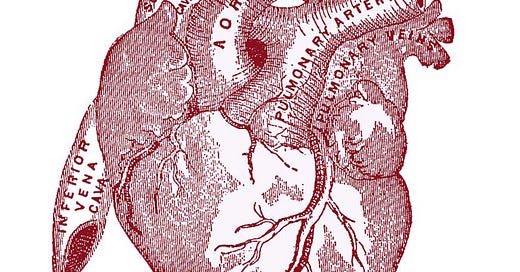When a vacation goes awry.
How a heart attack cancelled our trip to Berlin & placed us on another journey.
Two weeks ago I was up early writing this Wanderland newsletter declaring what our trip to Berlin was about, my finger ready to push the button on sending this image below out when . . .
. . . at 7:15 a.m., my partner Richard came into the living room pressing on his sternum and told me he had a strange pain in his chest.
“How long have you had this pain…
Keep reading with a 7-day free trial
Subscribe to Wanderland to keep reading this post and get 7 days of free access to the full post archives.




